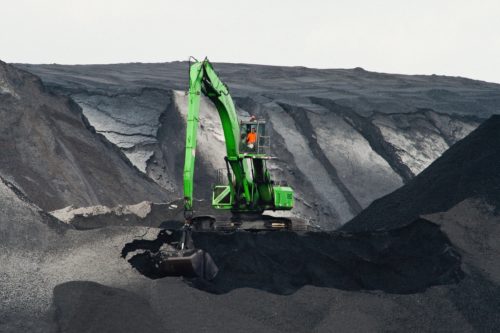Mining is an incredibly diverse sector, with more than 120 occupations ranging from skilled trades to high tech professionals. Here are some examples:
Jobs in mining include:
- Assay Lab Technician
- Contract Miner
- Development Miner
- Diamond Driller
- Electrician
- Environmental Coordinator
- Geologist
- Health & Safety Management
- Heavy Equipment Mechanic
- Metallurgical Engineer
- Millwright/Mechanic
- Mining Engineer
- Prospector
- Sales/Management
- Surveyor
- Virtual Reality Modeler
- Welder
From: http://www.acareerinmining.ca/
What Is Mining?
Natural Resources Canada’s definition of mining is based on four stages.
Stage I – Mineral extraction and concentrating industries
- Exploration for, and development of, mineral deposits
- Mining, quarrying, milling (crushing and mechanical separation) and other preparation customarily done at the mine site
- Inclusive of metal, non-metallic mineral and coal production
Stage II – Smelting and refining industries
- Smelting and refining of ferrous and non-ferrous metals
- Extracting alumina from bauxite ore, producing aluminum from alumina and rolling or extruding basic shapes from aluminum
Stage III – Metal and non-metal semi-fabricating industries
- Manufacturing or processing steps required to produce semi-finished or semi-fabricated forms for use as an input in other industries
Stage IV – Metal fabricating industries
- Further processing and manufacturing products of Stage III.
From: Prospecting the Future: Meeting Human Resources Challenges in the Canadian Minerals and Metals Industry, MITAC, 2005
What Kinds of Careers Are Available in the Mining Industry?
Careers in mining involve travel, cutting-edge and high-tech environments, and work in both large and small businesses that require the following kinds of workers:
Occupational Group Typical Occupations
- Physical Scientists
- Geologists
- Geochemists
- Geophysicists
- Professional Engineers
- Mining and Mineral Engineers
- Geological Engineers
- Metallurgical Engineers
- Other Engineers (e.g., environmental)
- Technicians /Technologists/Skilled Trades/Transportation
- Machine Operators
- Machinery and Transportation Equipment Operators
- Heavy Equipment Operators
- Semi-skilled Occupations
- Supervisors, Mining and Processing
- Crane Operators, Drillers, Blasters
- Central Control Room Operators
- Underground Miners
- Mine Service Workers
- Chemical Technicians/Technologists
- Geological Technicians/Technologists
- Mining Technicians/Technologists
Management, Business and Financial Occupations
- Financial and Investment Analysts
- Financial Auditor
- Accountant
- Financial Analyst
- Lawyer
- Operations Specialties Manager
- Top Executive
- Professional and Scientific Occupations
- Chemical Engineer
- Chemist
- Computer Programmer
- Computer systems Analyst
- Drafting Technologist
- Electrical Engineer
- Electronic Service Technician
- Environmental Scientist
- Environmental Technician
- Geochemist
- Geological Engineer
- Geological Technician
- Geologist
- Geophysical Technician
- Geophysicist
- Geological & Mineral Technologists and Technicians
- Mechanical Engineer
- Metallurgical Control Analyst
- Metallurgical Engineer
- Mining Engineer
- Process Engineer
- Prospector
- Quality Control Engineer
- Surveyor
- Installation, Maintenance and Repair Occupations
- Carpenter
- Construction Millwright
- Industrial Mechanic
- Heavy-Duty Equipment Mechanic
- Machinist or Machining and Tooling Inspector
- Maintenance Analyst or Maintenance Worker
- Technical Occupation in Electronics and Electrical Engineering
- Manager of Mechanics, Installers and Repairers
- Trades Helper and Labourer
- Construction and Extraction Occupations
- Blaster
- Borer Operator
- Construction Equipment Operator
- Diamond Driller
- Electrician
- Explosives Handlers and Packer
- Extraction Worker
- First-Line Supervisor/Manager of Construction Trades and Extraction Workers
- Mine Cutting and Channeling Machine Operator
- Mine Safety Inspector
- Miner
- Mining Machine Operator
- Rock Splitter
- Roof Bolter
- Stationary Engineer
- Production Occupations
- Mill Operator
- Managers of Production and Operating Worker
- Crushing, Grinding, and Polishing Machine Setter, Operator or Tender
- Plant and System Operator
- Production Worker
- Solderer
- Welder
- Separating, Filtering, Clarifying, Precipitating and Still Machine Setter, Operator or Tender
- Transportation and Material Moving Occupations
- Bulldozer Operator
- Conveyor Operator
- Excavator Operator
- Freight, Stock, and Material Mover
- Hand Shuttle Car Operator
- Hoistman
- Industrial Truck and Tractor Operator
- Loading Machine Operator
- Truck Driver
- Health and Safety Occupations
- Health and Safety Training Supervisor
- Health and Safety Worker
- Nursing Supervisor
- Registered Nurse
From: http://www.acareerinmining.ca/
How Much Will I Make?
Mining is one of the highest paying industrial sectors in Canada. Mining employees earn more than their counterparts in utilities, forestry, manufacturing and construction. Job security is also an attractive feature of jobs in the mining sector.
According to Statistics Canada, compensation is highest in coal mining, at $1,257.91 per week, and lowest in non-metallic mineral mining and quarrying activities, at $962.70 per week.
Workers in oil and gas earn a $76,930 average annual base salary, while employees in coal mining earn $70,886 and workers in metal ore mining earn $59,273.
In addition to competitive wages, the industry typically offers its employees substantial benefits. Many employers offer stock options, reimbursement of costs for educational programs, relocation funding and in-house training programs.
From: Prospecting the Future: Meeting Human Resources Challenges in the Canadian Minerals and Metals Industry, MITAC, 2005
Sing up for Job Alerts to receive email notification about mining jobs
Read also:




